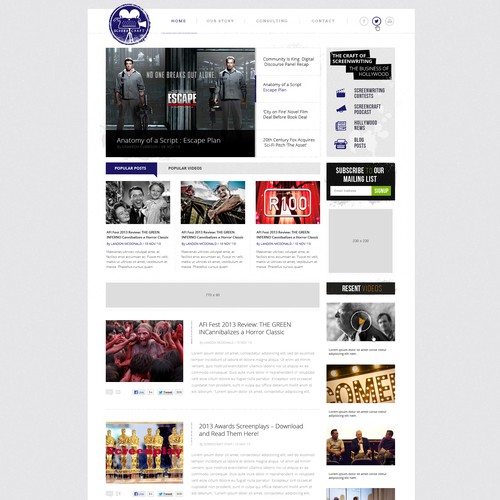What Does News Websites Mean?
What Does News Websites Mean?
Blog Article
The Best Strategy To Use For News Websites
Table of ContentsA Biased View of News WebsitesNot known Details About News Websites Not known Details About News Websites The Single Strategy To Use For News WebsitesThe Single Strategy To Use For News Websites
It was down in the UK and Brazil yet up a few other nations, such as Greece, Bulgaria, and Poland (News Websites). This year, for the first time, we asked regarding the various ways that individuals prevent the information and located that around half of avoiders (53%) were attempting to do so in a broad-brush or regular way for instance, by shutting off the radio when the information came on, or by scrolling past the news in social networkse.g. scrolling previous information, altering channels when information begins. of avoiders examine sources much less commonly. e.g. restriction to certain times of day, transforming off alerts, etc. of avoiders avoid some subjects. e.g. subjects that reduce state of mind or boost anxiety. You said that you attempt to actively stay clear of news.

I'm probably selecting to find out more light-hearted tales than I utilized to right now. M, 51, UK Switching my back on information is the only method I feel I can cope often. I have to knowingly make the effort to turn away for my own psychological health.
More About News Websites
Selective evasion of Ukraine information was highest in a number of the countries closest to the conflict, enhancing findings from our added study in 2015, right after the battle had started. Our information may not suggest an absence of rate of interest in Ukraine from nearby nations but instead a wish to handle time or shield mental health and wellness from the really real horrors of battle.
Contrasting Finland with a politically polarised nation such as the United States (see next chart) that is much less affected by the war, we discover a really various pattern of topic evasion. In the USA, we locate that consumers are most likely to stay clear of topics such as national politics and social justice, where arguments over problems such as sex, sexuality, and race have actually become extremely politicised.
American politics are quite hazardous nowadays. I locate sometimes that I have to separate from stories that just make me angry. F, 61, USA For some people, bitter and dissentious political disputes are a factor to switch off information completely, but also for some political upholders, avoidance is often about obstructing out perspectives you do not intend to listen to.

News Websites Can Be Fun For Everyone
Some are seeking to make information much more easily accessible for hard-to-reach groups, widening the news program, commissioning even more inspiring or favorable news, or accepting useful or services journalism that provide individuals a sense of hope or individual agency. In our survey this year, we asked participants about their rate of interest in these different approaches.
This describes why stories like Ukraine or nationwide politics do well with news regulars however can at the very same time turn much less interested individuals away (News Websites). Careful avoiders are less interested in all kinds of news than non-avoiders however in relative terms they do appear to be a lot more interested in positive or solutions-based information

All About News Websites
2023). This may hold true in the minute, however in time it seems to be leaving many individuals vacant and less satisfied, which might be weakening our connection with and rely on the news. Across markets, total rely on news (40%) and rely on the resources people use themselves (46%) are down by an even more 2 percent points this year.
Indeed, via the rear-view mirror, the COVID-19 trust bump is plainly visible in the following chart, though the instructions of travel afterwards has actually been mixed. In some cases (e.g. Finland), the depend on boost has actually been maintained, while in others Visit This Link the upturn looks even more like a spot in a story of ongoing lasting decline.
Several of the greatest reported degrees of media criticism are discovered in nations with highest degree of mistrust, such as Greece, the Philippines, the USA, France, and the United Kingdom. The least expensive degrees of media criticism frequent those with higher levels of trust fund, such as Finland, Norway, Denmark, and Japan.
About News Websites
This year we asked participants concerning find out their choices for message, audio and video when consuming information online. Usually, we locate that the bulk still favor to review the information (57%), as opposed to watch (30%) or listen to it (13%), yet more youthful individuals (under-35s) are more probable to pay attention (17%) than older groups.
Behind the averages we find significant and surprising nation distinctions. In markets with a strong reading tradition, such as Finland and the UK, around 8 in ten still choose to read online information, however in India and Thailand, around four in ten (40%) say they prefer special info to watch news online, and in the Philippines that proportion is over fifty percent (52%).
Report this page